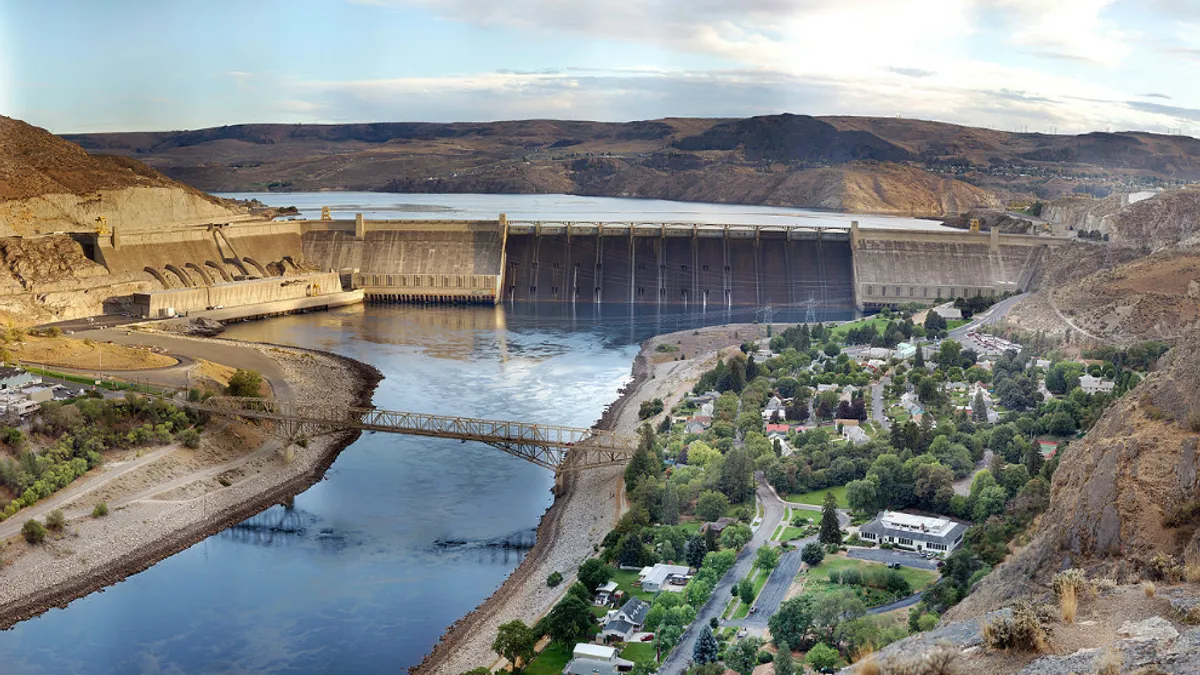Dive Brief:
- The U.S. House of Representatives yesterday passed House Resolution 3043, the Hydropower Policy Modernization Act of 2017, on a vote of 257-166, with 26 Democrats in favor.
- Sponsored by Rep. Cathy McMorris Rodgers (R-WA), a member of the Energy and Commerce Committee, the measure seeks to modernize the licensing process for hydropower facilities.
- Passage of the House bill comes about three weeks after the Federal Energy Regulatory Commission issued a new policy setting a 40-year default license term for new hydroelectric projects under its jurisdiction.
Dive Insight:
Hydropower is "crucial to our way of life in the Pacific Northwest," said McMorris Rodgers, but complexities in the siting process are holding back investment.
The lawmaker said the bill will not change outcomes or environmental standards, but will speed up the relicensing process, saving time and money. "Providing relief from these costly and time-consuming regulatory processes will encourage investment in hydropower so we can continue to support this clean energy in our region," McMorris Rodgers said.
While hydroelectricity is the United States' largest renewable resource, the bill was developed out of concern that the duration, complexity and uncertainty of the licensing process created significant barriers.
Hydropower accounts for more than 40% of Oregon's electricity, and Committee Chairman Greg Walden (R-OR) said the resource should not be "bogged down in bureaucratic red tape any longer."
"At the end of the day, this important legislation promotes hydropower development, creates jobs, and provides consumers across the country with continued access to clean, affordable and reliable baseload power generation," Walden said.
Federal regulators have also moved recently to improve the hydro licensing process.
The Federal Energy Regulatory Commission issued a new policy Oct. 19, setting a 40-year default term covering original and new licenses for hydroelectric projects at non-federal dams.
“The new policy will provide more certainty and efficiency for stakeholders engaging in the Commission’s regulatory process,” FERC said in a statement.
The commission also listed three scenarios where it could issue a license for less or more than 40 years, including “when necessary to coordinate license terms for projects located in the same river basin [and] when a license term is explicitly agreed upon in a generally supported comprehensive settlement agreement.”
The House measure now heads to the U.S. Senate for consideration.














